- Home
- Tennessee Williams
Memoirs
Memoirs Read online
MEMOIRS
TENNESSEE WILLIAMS
MEMOIRS
INTRODUCTION BY
JOHN WATERS
A NEW DIRECTIONS BOOK
CONTENTS
Introduction by John Waters
Foreword by Tennessee Williams
Memoirs
Afterword by Allean Hale
List of Illustrations
Index
INTRODUCTION
Mr. Williams Saved My Life
BY JOHN WATERS
TENNESSEE WILLIAMS SAVED MY LIFE. As a twelve-year-old boy in suburban Baltimore, I would look up his name in the card catalogue at the library and it would read “see Librarian.” I wanted these “see Librarian” books—and I wanted them now—but in the late 1950s (and sadly even today), there was no way that a warped adolescent like myself could get his hands on one. But I soon figured out that the “see Librarian” books were on a special shelf behind the counter. So when the kindly librarian was helping the “normal” kids with their book reports, I snuck behind the checkout desk and stole the first book I ever wanted to possess on my own. One Arm read the forbidden cover, a short-story collection by Tennessee Williams that I later found out had been only available in an expensive limited edition, sold under the counter in “special” bookshops before New Directions released the hardback version in 1954. And now it was mine.
Of course, I knew who Tennessee Williams was. He was a bad man because the nuns in Catholic Sunday School had told us we’d go to hell if we saw that movie he wrote, Baby Doll—the one with the great ad campaign, of Carroll Baker in the crib sucking her thumb, that made Cardinal Spellman have a nation-wide hissy fit. The same ad I clipped out of The Baltimore Sun countless times and pasted in my secret scrapbook. The movie I planned to show over and over in the fantasy dirty-movie theater in my mind that I was going to open later in life, causing a scandal in my parents’ neighborhood.
Yes, Tennessee Williams was my childhood friend. I yearned for a bad influence and boy, was Tennessee one in the best sense of the word: joyous, alarming, sexually confusing and dangerously funny. I didn’t quite “get” “Desire and the Black Masseur” when I read it in One Arm, but I hoped I would one day. The thing I did know after finishing this book was that I didn’t have to listen to the lies the teachers told us about society’s rules. I didn’t have to worry about fitting in with a crowd I didn’t want to hang out with in the first place. No, there was another world that Tennessee Williams knew about, a universe filled with special people who didn’t want to be a part of this dreary conformist life that I was told I had to join.
Years later, Tennessee Williams saved my life again. The first time I went to a gay bar I was seventeen years old. It was called The Hut and it was in Washington, DC. Some referred to it as The Chicken Hut, and it was filled with early 1960s gay men in fluffy sweaters who cruised each other by calling table-to-table on phones provided by the bar. “I may be queer but I ain’t this,” I remember thinking. Still reading everything Tennessee Williams wrote, I knew he would understand my dilemma. Tennessee never seemed “gayly-correct” even then, and sexual ambiguity and confusion were always made appealing and exciting in his work. “My type doesn’t know who I am,” he stated, according to legend, and even if the sex lives of his characters weren’t always healthy, they certainly seemed hearty. Tennessee Williams didn’t fit into his own minority so I had the confidence not to either. Gay was not enough.
It was a good start, however. “I was late coming out and when I did it was with one hell of a bang,” Tennessee writes in 1972 in Memoirs, the same year my film Pink Flamingos was world-premiering in Baltimore. While I was just getting my first national notoriety, Tennessee was struggling to finish the final version of The Two Character Play, and horrifying theater purists by appearing on stage in his new play Small Craft Warnings, and then answering questions from the off-Broadway audience afterwards to keep the show running. I never once thought this was unbecoming behavior on my hero’s part and tried to follow his example by introducing in person, my star Divine, at midnight screenings of our filth epic. “I never had any choice but to be a writer,” Tennessee remembered at the time, and he remained my patron saint. I followed his career like a hawk.
Why was Memoirs reviewed so badly when it came out in 1975? “The love that previously dared not speak its name has now grown hoarse from screaming it,” Robert Brustein wrote in The New York Times. Today, few critics would be so blatantly homophobic, but Tennessee did love to bait his enemies. “They offered me a $50,000 advance,” he said of the book, “and I thought I’d be dead when it came out.” But more sensibly he admitted, “Of course, I could devote this whole book to a discussion of the art of drama, but wouldn’t that be a bore?” Memoirs certainly isn’t a bore and caused a sensation when it was released. In fact, the day Tennessee showed up at Doubleday Bookshop in Manhattan and signed over 800 copies became known as “The Great Fifth Avenue Bookstore Riot.”
Maybe I like “bad” Tennessee Williams just as much as “good.” This year a boxed set of DVDs was released containing all of Tennessee Williams’ best reviewed movies: Streetcar, Cat on a Hot Tin Roof, Sweet Bird of Youth, Night of the Iguana, and The Roman Spring of Mrs. Stone. But I want the “bad” Tennessee Williams boxed set: Boom (the greatest failed art film ever made) directed by Joseph Losey and starring Elizabeth Taylor as Sissy Goforth, the richest woman in the world, and Richard Burton as “The Angel of Death,” Last of the Mobile Hotshots (the film version of The Seven Descents of Myrtle), This Property Is Condemned with Natalie Wood, and even Noir et Blanc, the 1986 Claire Devers film version of “Desire and the Black Masseur.” The “bad” Tennessee Williams is better than most of the “good” of his contemporaries.
Was Tennessee nuts when he wrote Memoirs, or just high? Would his original agent, Audrey Woods (from whom he sadly broke in 1971), even have allowed him to publish this book if she had still been in charge of his career? “Since 1955 I have written usually under artificial stimulants,” he admits before adding, “aside from the true stimulant of my deep-rooted need to continue to write.” Did Tennessee ever really get over the 1960s, which he calls “my stoned age?” “To know me is not to love me,” he admits, remembering the “seven year depression” he went into after the death by lung cancer of his longtime boyfriend, Frank Merlo. “I’m about to fall down,” Tennessee would announce to whoever was present in those years, “and almost nobody, nobody ever caught me.”
When Tennessee suddenly is level headed, it can come as a surprise. “I have never doubted the existence of God,” he writes soberly before later admitting a “disbelief in an after-existence.” His guarded optimism always seems to save the day. “Mornings, I love you so much,” he enthuses, celebrating “their triumph over night.” Self-pity? Never. “I’ve had a wonderful and terrible life and I wouldn’t cry for myself: would you?” Hardly.
“Is it possible to be a dirty old man in your middle thirties?” Tennessee writes in Memoirs, remembering his very active sex life—a kind of sex life that we are much more used to reading about in memoirs today than we were then. “Baby, this one’s for you,” he tells himself whenever Mr. Right Now appears, but he seems to be realistic about safe sex with strangers even before the onslaught of AIDS. Recommending “that penetration be avoided” with hustlers “as they are most probably all infected with clap in the ass,” he may be the only Pulitzer Prize winner to write about A-200, a product used for ridding your body hair of crab lice. Of course he has standards. “The way I feel tonight I could fuck a snake,” a young sailor confides to Tennessee one night in a gay bar, “and I am proud to say that I told him to go snake-hunting,” Tennessee responded.
Tennessee falls in love a lot too. “I have a funny heart. Sometimes it
seems to thrive on punishment,” he admits. What other memoir has “loneliness” listed in the index? Provincetown, Massachusetts, that beautiful beach town on the very tip of Cape Cod, seemed to bring out the best in him romantically. Not only did he meet two of his best boyfriends there (and Tallulah Bankhead), he wrote the line “I have always depended on the kindness of strangers” while holed up in a cabin before the summer season began. I felt the same way about Provincetown. I hitchhiked there in 1964 just because somebody told me, “It’s a weird place,” and boy, were they right. A very gay place too, but a different kind of gay. “I may be queer, but I AM this,” I remember thinking. I’ve gone back to Provincetown for forty-three summers and every time I pass by Capt’n Jack’s or the “little bar” at The A House, two places Tennessee got lucky in love, I mentally genuflect in respect.
Tennessee knew how to have fun with fame, too, and it seems he met all my idols: Jane Bowles, Luchino Visconti, Jean Marais, Johnny Ray, Yukio Mishima. So what if Jean Paul Sartre once stood Tennessee up—I bet Sartre was a bum date anyway. Tennessee helped William Inge, the great playwright who lived in Tennessee’s shadow, through alcoholism (the blind leading the blind?), and tried to understand the folie de grandeur of best friend Lady Maria St. Just, one of the most difficult women who ever lived. Even Truman Capote comes across sympathetically in Memoirs. But unlike Truman, Tennessee never took the upperclass that seriously. He hung around with street queens in New Orleans, prostitutes in Key West, and later in life, Warhol superstar Candy Darling became a best friend. He isolated himself, far away from New York and Los Angeles, to write and whenever he panicked, travel seemed to be the answer. “My place in society,” Tennessee remembers, “then and possibly always since then, has been in Bohemia.”
Suppose Tennessee Williams had lived? What if he hadn’t choked on that prescription drug vial cap that he supposedly used as a launching pad for his meds? Would his career have had a second wind like Edward Albee’s? Or would he have despaired and crumbled further when the AIDS epidemic hit, and wiped out many of his new younger friends? Surely he would be appalled at the end of “trade” as he knew it, but would he be like some of the older gay men I see now in onetime hustler bars in Baltimore who wait for the trade, even though they know it will never ever come? Would Tennessee have teamed up with Paul Morrissey? “I would like him to make a film of one of my short stories,” Tennessee writes and who knows—maybe these two mavericks could have reinvented each other as a pair in the same way as Douglas Sirk and Fassbinder did. Most importantly, could Tennessee have ever really hit “bottom” and gotten sober once and for all? On the wagon, would he have been able to continue to think up the best titles in the history of theater the way he always had done? Even with all the self-prescribed substance abuse, Tennessee seemed to age well and remained cheerfully handsome, but if he had reached his late seventies, would he have ruined it all by getting a face lift? Could anyone have saved Tennessee? Critics? Fans? Tricks? We, the readers? One thing for sure, flattery would have gotten us nowhere. “When people have spoken to me of ‘genius,’” he writes with a wink, “I have felt an inside pocket to make sure my wallet’s still there.”
I never met Tennessee Williams, but I saw him once at The Pier House restaurant in Key West, surrounded by admirers, looking a little woozy, and decided maybe this wasn’t the time for us to be introduced. But reading Memoirs is the next best thing—it’s like having a few stiff drinks with Tennessee on one of his good nights as he tells you juicy stories that were once off the record. Listening could save your life too.
MAY 2006
FOREWORD
A fairly short while ago I happened to be in the city of New Haven, Connecticut, in connection with what was imposingly announced as the “world premiere” of an “adventure in drama,” a play called Out Cry, about which I will write from time to time in this book. Out Cry was irrevocably committed to its first public exposure on-stage in the early season of 1973, at that grand old maternity ward of the Broadway theatre called the Shubert.
I suspect the reader may know that New Haven is distinguished as the site not only of the Shubert but also of one of the largest of our old Ivy League schools, known as Yale.
At this point I will not go into my nervous and physical condition at that point except to say that I was recuperating much too gradually from a bout with London and/or Hong Kong flu, complicated by that condition whose name is derived from the name of “Pan” and whose first name isn’t Peter.
Never mind these feeble attempts at humor, so pathetically characteristic of old crocodiles and old playwrights. Scratching the hide of the latter, you will discover that it can only be noticeably indented by the cutting edge of a diamond or by a bit of dandelion fluff in the atmosphere of a late summer afternoon.
Well, anyhow, as they say so often in my plays, I had been invited to appear before a collection of Yale drama students the afternoon before the aforementioned “world premiere” of this adventure in drama. I remembered the Shubert as a building that contained a great many seats, upstairs and down, and also I remembered that quite a number of these seats are likely to be unoccupied even on the occasion of a “world premiere.” And it occurred to me that if I made a seductive impression upon Yale students some of those seats not booked for that same evening might be adventurously snatched from the dreadful maw of vacuity.
I have now covered the geographic and social and physical and mental background of the impending occurrence so let’s now cut directly to story.
I was invited to hold a symposium with Yale drama students. The symposium was arranged by the genial head of the Department of Theatre Arts at Yale. I found myself entering (through a door marked EXIT) an auditorium considerably smaller than the Shubert but containing a more than proportionately small audience. I would say roughly about twoscore and ten, not including a large black dog which was resting in the lap of a male student in the front row. My own position was in a folding chair behind a folding table on which was set a tumbler of what appeared to be plain water and which I immediately discovered to be just that. Furthermore, the young faces before me were uniformly inexpressive of any kind of emotional reaction to my entrance through that side door marked EXIT. In fact, the only face that betrayed a real interest was that of the dog.
I am not much good at disguising my feelings, and after a few moments I abandoned all pretense of feeling less dejection than I felt. I was talking. I was making these tired old jokes that come off like the destitute man’s Bob Hopeless at an encampment in some failed war. I found myself sinking lower in the folding chair, and that slumped position, combined with fits of wheezing, sniffling and coughing, encouraged some of the small assemblage to get up and walk out on me, a thing that stirred in my heart no sense of the favorably providential. Still I continued to hear myself talking but no longer telling old jokes. I heard myself describing an encounter, then quite recent, with a fellow playwright in the Oak Room Bar at Manhattan’s Plaza Hotel. I told them that this encounter had been inadvertent on both his part and mine, but since he happened to be my old friend Gore Vidal, I had embraced him warmly. However, Mr. Vidal is not a gentleman to be disarmed by a cordial embrace, and when, in response to his perfunctory inquiries about the progress of rehearsals of Out Cry I told him that its two performers, Michael York and Cara Duff-MacCormick, and the director, Peter Glenville, and the producer, David Merrick, all seemed a dream come true after many precedent nightmares, he smiled at me with a sort of rueful benevolence and said, “Well, Bird, it won’t do much good, I’m afraid, you’ve had too much bad personal exposure for anything to help you much anymore.”
Well, then, for the first time, I could see a flicker of interest in the young faces before me. It may have been the magic word Vidal or it may have been his prophecy of my professional doom. At any rate, a young lady student of drama in the diminished group stood up to ask me if I regarded Gore’s assessment of my present situation in my profession here in the States as a reliable on
e.
I looked at her in silence for a moment while wondering if I did so regard it, and I came to no conclusion about the question.
My eyes drifted from her face to that of the young man in the front row with the big black dog in his lap.
Laughter has always been my substitute for lamentation and I laugh as loudly as I would lament if I hadn’t discovered a useful substitute for weeping. Usually I laugh longer than I should, as well as more loudly than I should. This time I cut short my travesty of mirth and said to the young lady, “Ask the dog.”
The truth is that I don’t know whether or not I can ever again receive a persuasively favorable critical response to my theatre work in this country, I know the answer no more than does the dog.
But I am not embittered nor even greatly disconcerted by this dilemma in which I find myself. In a way, it does seem that I have almost asked for it. There is a duality in my attitude toward an audience now. Of course I want their approval, I want their understanding and their empathy. But there is much about them that strikes me as obdurately resistant to my kind of theatre these days. They seem to be conditioned to a kind of theatre which is quite different from the kind I wish to practice.
Actually my own theatre is also in a state of revolution: I am quite through with the kind of play that established my early and popular reputation. I am doing a different thing which is altogether my own, not influenced at all by other playwrights at home or abroad or by other schools of theatre. My thing is what it always was: to express my world and my experience of it in whatever form seems suitable to the material.
Since The Night of the Iguana, the circumstances of my life have demanded of me a continually less traditional style of dramatic writing: I am referring to such works as The Gnadiges Fraulein, In the Bar of a Tokyo Hotel, and, most recently, the latest production of Out Cry. And, to an extent, the style of these memoirs.

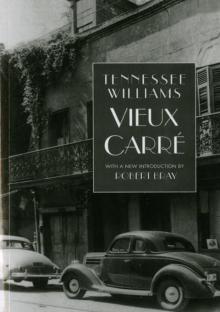 Vieux Carre
Vieux Carre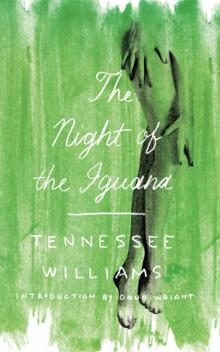 The Night of the Iguana
The Night of the Iguana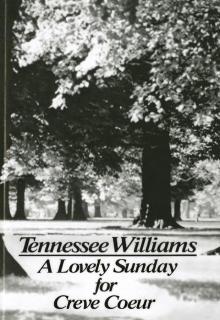 A Lovely Sunday for Creve Coeur
A Lovely Sunday for Creve Coeur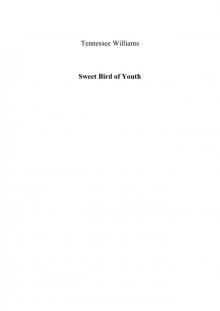 Sweet Bird of Youth
Sweet Bird of Youth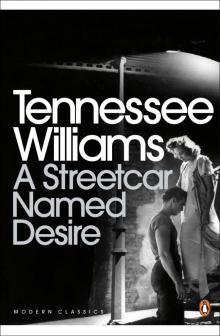 Streetcar Named Desire
Streetcar Named Desire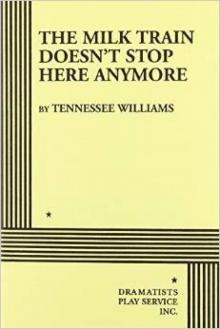 The Milk Train Doesn't Stop Here Anymore
The Milk Train Doesn't Stop Here Anymore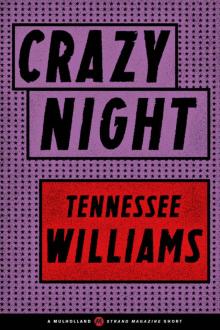 Crazy Night
Crazy Night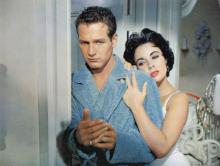 Three Plays of Tennessee Williams
Three Plays of Tennessee Williams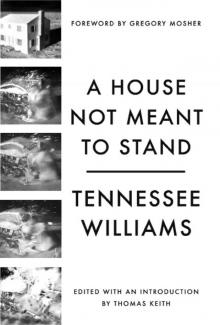 A House Not Meant to Stand
A House Not Meant to Stand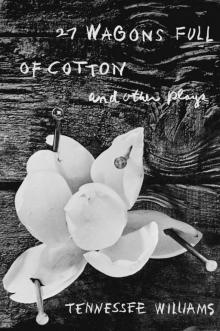 27 Wagons Full of Cotton and Other Plays
27 Wagons Full of Cotton and Other Plays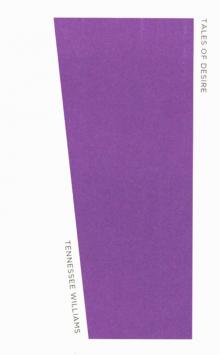 Tales of Desire
Tales of Desire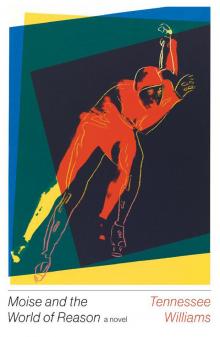 Moise and the World of Reason
Moise and the World of Reason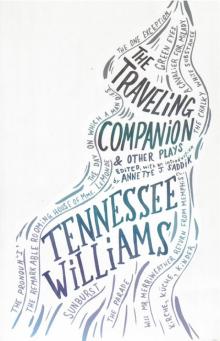 The Traveling Companion & Other Plays
The Traveling Companion & Other Plays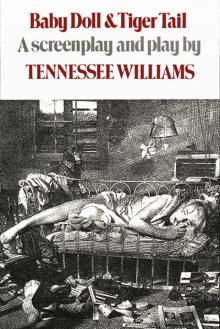 Baby Doll Tiger Tail: A Screenplay and Play by Tennessee Williams
Baby Doll Tiger Tail: A Screenplay and Play by Tennessee Williams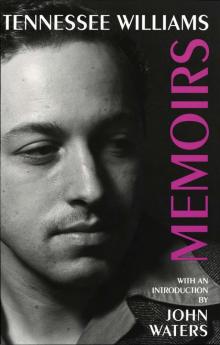 Memoirs
Memoirs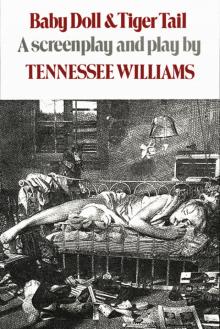 Baby Doll & Tiger Tail
Baby Doll & Tiger Tail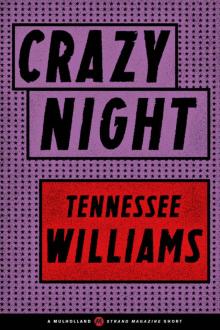 Crazy Night (A Mulholland / Strand Magazine Short)
Crazy Night (A Mulholland / Strand Magazine Short)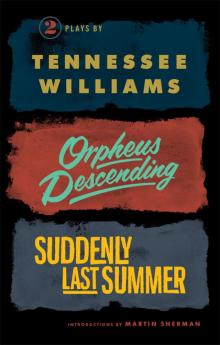 Orpheus Descending and Suddenly Last Summer
Orpheus Descending and Suddenly Last Summer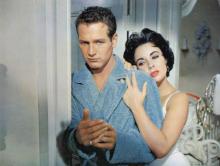 Three Plays
Three Plays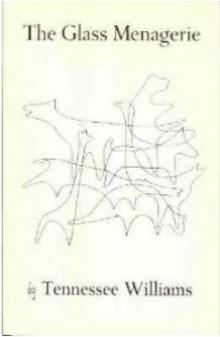 The Glass Menagerie
The Glass Menagerie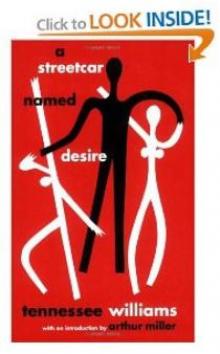 A Streetcar Named Desire
A Streetcar Named Desire